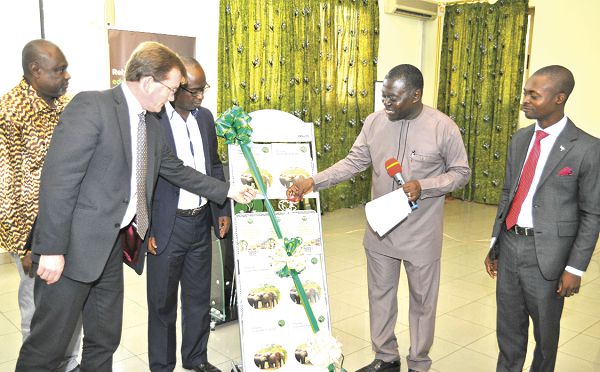
Report on legislations, policies on wildlife launched
The Wildlife Society of Ghana has launched a report on a review of 124 legislations and 28 policies on agriculture, protected areas and environmental assessment in Ghana.
The report collates and synthesises a long list of domestic legislation and regulations in addition to international legislations signed and ratified by Ghana.
It also analyses the gaps in Ghana’s legislation and substantive policies.
The report further highlights key recommendations for changes that could strengthen the effectiveness of legal and policy requirements on agriculture, protected areas and environmental assessment.
It recommended that the government gives priority to the provision of incentives that would encourage tree planting and sustainable management of the environment.
Sustainable land use
Speaking at the launch, the Executive Secretary of the Ghana Wildlife Society, Mr Eric Lartey, said despite the existence of a broad spectrum of legislation, weak governance structures, inadequate implementation and gaps within the current legislation have made it difficult to ensure sustainable land use and Ghana’s development.
The report which took a year to complete, he pointed out, was in line with the Ghana Wildlife Society's mandate to contribute to the policy making and implementation process.
With support from the Royal Society for the Protection of Birds (RSPB), a partner of BirdLife in the UK, Mr Lartey said the Taylor Crabbe Initiative was commissioned to review the legal and policy framework governing the three areas.
The review also forms part of BirdLife’s East Atlantic Flyway Initiative (EAFI) programme of work, focused on migratory birds of the African-Eurasian Flyway that migrate through landscapes of West Africa as their wintering grounds.
In his view, the report would serve as a one-stop shop where stakeholders could find a list of policies and legislation.
Wildlife Bill
He appealed to the Ministry of Lands and Natural Resources to speed up the Wildlife Resources Management Bill which had been in and out of parliament for the past five years.
“We indeed need sanitisation of our legislative framework governing wildlife to legitimise the role of resource dependent communities and provide incentives for natural resource management,” he said.
Threats
A Deputy Minister of Lands and Natural Resources, Mr Benito Owusu-Bio, admitted that Ghana’s forest reserves and protected areas were currently faced with a myriad of threats.
The threat included illegal mining popularly known as galamsey, illegal logging, agricultural expansion, excessive fuel wood harvesting, rampant wildfires and housing.
“These drivers have led to significant changes in land use in Ghana and this is negatively impacting on the biodiversity and ecological health of our forest and savannah landscapes, as well as the environment in general,” he said.
To reverse the trend, he said the government was taking some major interventions such as the Multi-Sectoral Mining Integrated Project which is to fight illegal mining and the Voluntary Partnership Agreement (VPA) to fight illegal logging of timber.
The Ministry, through the Ghana Forest Investment Programme (GFIP), is also pursing policy reforms that would allow farmers to enjoy benefits from nurturing trees on their farms.
“This policy reform will motivate farmers to keep trees on their farms to reduce deforestation and forest degradation, especially in off-reserve areas,” he stated.
He was confident that the Wildlife Bill which seeks to consolidate all wildlife laws and make wildlife management more effective and sustainable would be passed by parliament soon as it was currently before cabinet.
Communities
In his remarks, the Operations Manager and Coordinator for the Rapid Response Unit of the Forestry Commission, Mr Luri Kanton, said the Commission, which was the main implementer of forestry and wildlife laws, was elated about the reviewed legislations.
He said there was the need to update some of the existing laws and also educate residents of communities closer to protected areas on the benefits of sustainable management of natural resources.
For his part, the head of International Policy Programmes of the Royal Society for the Protection of Birds (Rsspb), Mr Andrew Callender, said sustainable management of natural resources was a major challenge of nations around the world.
He said the report was part of efforts to address issues of sustainable management of resources.
The Director of the Centre for Climate Change and Sustainable Studies at the University of Ghana, Professor Erasmus Heneku Owusu, expressed the hope that the report would help strengthen legislations and policies governing the environment for the achievement of the sustainable development goals (SDGs).
